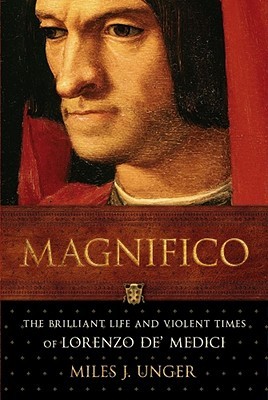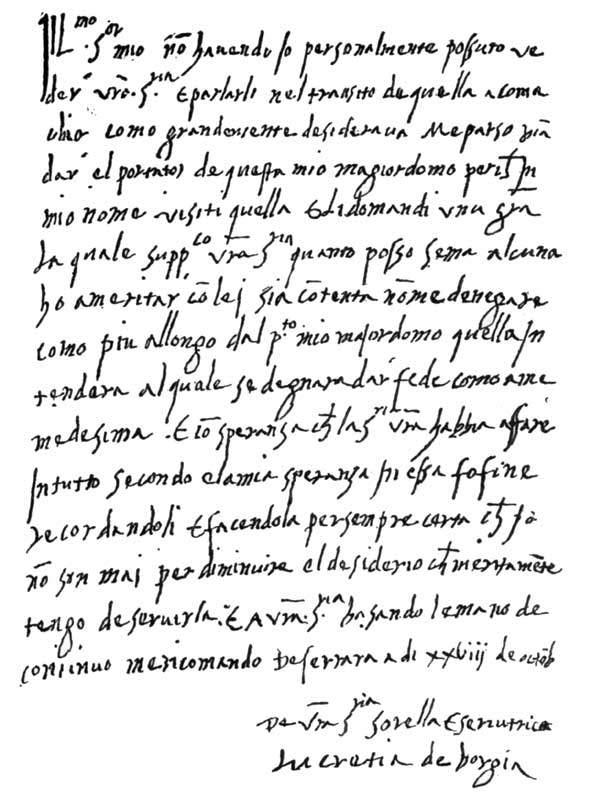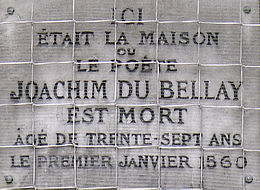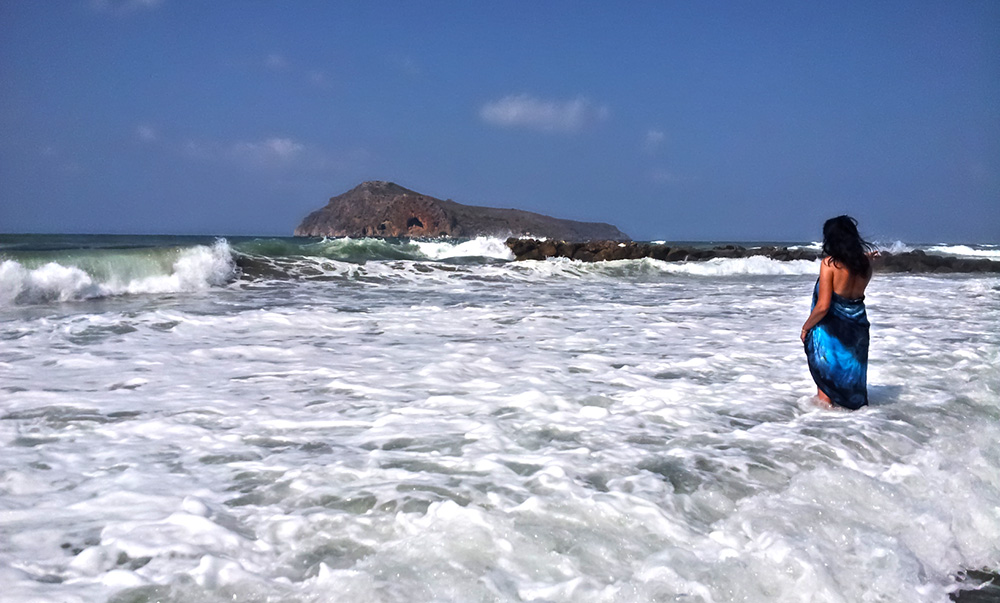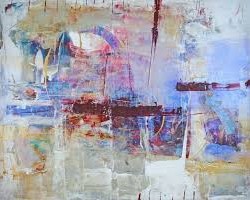- HOME
- MEDIA
- L.Onerva
- Eino Leino
- Eeva-Liisa Manner
- Erään Opon päiväkirja
- Elämänkenttäni
- Elämäni ”viiva”
- Käyttöteoriani – se miten minä ohjaan
- Kulttuuritietoinen ja kansainvälistyvä ohjaus
- Ohjauksen järjestäminen maahanmuuttajakoulutuksessa
- Ohjauksen yhteiskunnallinen viitekehys
- Ohjaukäsite
- Oma opiskeluorientaatio
- Opiskelijoiden yksilöllisyys ohjauksessa
- EETTISET KYSYMYKSET
- Psykososiaalisen kehityksen teoria
- Suhteeni erilaisuuteen ja tehtäväni opinto-ohjaajana
- Opinto-ohjauksen ja erityisopetuksen yhtäläisyyksiä ja eroja
- Kehitykseni opinto-ohjaajana
- Maahanmuuttajan uraohjaus
- Maahanmuuttajien ohjaus ja neuvonta: kuka, mitä, miten?
- Ohjauksen tulevaisuus
- Elämänkenttäni
- Mariana Marin
- Claudiu Komartin
- Mariana Codrut
- Roland Erb
- Romanian poetry
- STORIES
- READING POETRY
- translated Finnish-Romanian
- translated English-Finnish
- translated French-Finnish
- translated Romanian-English
- translated Spanish-English
- translated German-English
- translated Finnish-English
- translated English-Romanian
- translated French-Romanian
- translated French-English
- translated Romanian-French
- translated Romanian-German
classic poetry
The Burden
POSTED IN classic poetry November 29, 2013
The BurdenOne grief on me is laid
Each day of every year,
Wherein no soul can aid,
Whereof no soul can hear:
Whereto no end is seen
Except to grieve again–
Ah, Mary Magdalene,
Where is there greater pain?To dream on dear disgrace
Each hour of every day–
To bring no honest face
To aught I do or say:
To lie from morn till e’en–
To know my lies are vain–
Ah, Mary Magdalene,
Where can be greater pain?To watch my steadfast fear
Attend mine every way
Each day of every year–
Each hour of every day:
To burn, and chill between–
To quake and rage again–
Ah, Mary Magdalene,
Where shall be greater pain:One grave to me was given–
To guard till Judgment Day–
But God looked down from Heaven
And rolled the Stone away!
One day of all my years–
One hour of that one day–
His Angel saw my tears
And rolled the Stone away!
Rudyard Kipling
The Art of Poetry
POSTED IN classic poetry November 14, 2013
To gaze at a river made of time and water
And remember Time is another river.
To know we stray like a river
and our faces vanish like water.
To feel that waking is another dream
that dreams of not dreaming and that the death
we fear in our bones is the death
that every night we call a dream.
To see in every day and year a symbol
of all the days of man and his years,
and convert the outrage of the years
into a music, a sound, and a symbol.
To see in death a dream, in the sunset
a golden sadness–such is poetry,
humble and immortal, poetry,
returning, like dawn and the sunset.
Sometimes at evening there’s a face
that sees us from the deeps of a mirror.
Art must be that sort of mirror,
disclosing to each of us his face.
They say Ulysses, wearied of wonders,
wept with love on seeing Ithaca,
humble and green. Art is that Ithaca,
a green eternity, not wonders.
Art is endless like a river flowing,
passing, yet remaining, a mirror to the same
inconstant Heraclitus, who is the same
and yet another, like the river flowing.
Jorge Luis Borges
Canzone a ballo
POSTED IN classic poetry October 15, 2013
Canzone a ballo
Chi non è innamorato
esca di questo ballo,
che saria fallo a stare in sì bel lato.
Se alcuno è qui che non conosca amore,
parta di questo loco;
perch’ esser non potria mai gentil core
chi non sente quel foco;
se alcun ne sente poco,
sì le sue fiamme accenda
che ognun lo intenda, e non sarà scacciato.
Amore in mezzo a questo ballo stia,
e chi gli è servo intorno.
E se alcuno ha sospetto o gelosia,
non faccia qui soggiorno;
se non, farebbe storno.
Ognun ci s’ innamori,
o esca fuor del loco tanto ornato.
Se alcuna per vergogna si ritiene
di non s’ innamorare,
vergognerassi, s’ ella pensa bene
108 più tosto a non lo fare;
non è vergogna amara
chi di servire agogna;
saria vergogna a chi gli fusse ingrato.
Se alcuna ce ne fussi tanto vile,
che lassi per paura;
pensi bene, che un core alto e gentile
queste cose non cura:
non ha dato natura
tanta bellezza a voi
acciò che poi sia il tempo mal usato.
Lorenzo de Medicis
Why?
POSTED IN classic poetry October 15, 2013
Why?
Why may I not go down to the grave with thee?
Would that my fire might warm this frigid ice,
And turn with tears, this dust to living flesh,
And give to thee anew the joy of life!
Then would I boldly, ardently confront
The man who snapped our dearest bond, and cry
“O cruel monster! See what love can do!”
Barbara Torelli
Forget Not Yet
POSTED IN classic poetry October 12, 2013
Forget Not Yet
Forget not yet the tried intent
Of such a truth as I have meant
My great travail so gladly spent
Forget not yet.
Forget not yet when first began
The weary life ye knew, since when
The suit, the service, none tell can,
Forget not yet.
Forget not yet the great assays,
The cruel wrongs, the scornful ways,
The painful patience in denays
Forget not yet.
Forget not yet, forget not this,
How long ago hath been, and is,
The mind that never means amiss;
Forget not yet.
Forget not yet thine own approved,
The which so long hath thee so loved,
Whose steadfast faith yet never moved,
Forget not this.
Sir Thomas Wyatt
A son livre
POSTED IN classic poetry October 12, 2013
A son livre
Mon livre (et je ne suis sur ton aise envieux),
Tu t’en iras sans moi voir la Cour de mon Prince.
Hé, chétif que je suis, combien en gré je prinsse
Qu’un heur pareil au tien fût permis à mes yeux ?
Là si quelqu’un vers toi se montre gracieux,
Souhaite-lui qu’il vive heureux en sa province :
Mais si quelque malin obliquement te pince,
Souhaite-lui tes pleurs et mon mal ennuyeux.
Souhaite-lui encor qu’il fasse un long voyage,
Et bien qu’il ait de vue éloigné son ménage,
Que son coeur, où qu’il voise, y soit toujours présent :
Souhaite qu’il vieillisse en longue servitude,
Qu’il n’éprouve à la fin que toute ingratitude,
Et qu’on mange son bien pendant qu’il est absent.
Joachim du Bellay
The Art of Poetry
POSTED IN classic poetry September 29, 2013
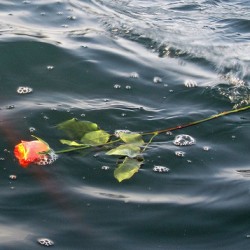
The Art of Poetry
To gaze at a river made of time and water
And remember Time is another river.
To know we stray like a river
and our faces vanish like water.
To feel that waking is another dream
that dreams of not dreaming and that the death
we fear in our bones is the death
that every night we call a dream.
To see in every day and year a symbol
of all the days of man and his years,
and convert the outrage of the years
into a music, a sound, and a symbol.
To see in death a dream, in the sunset
a golden sadness–such is poetry,
humble and immortal, poetry,
returning, like dawn and the sunset.
Sometimes at evening there’s a face
that sees us from the deeps of a mirror.
Art must be that sort of mirror,
disclosing to each of us his face.
They say Ulysses, wearied of wonders,
wept with love on seeing Ithaca,
humble and green. Art is that Ithaca,
a green eternity, not wonders.
Art is endless like a river flowing,
passing, yet remaining, a mirror to the same
inconstant Heraclitus, who is the same
and yet another, like the river flowing.
Good Bye
POSTED IN classic poetry September 5, 2013
Good-bye
Somewhere I Have Never Traveled
POSTED IN classic poetry July 23, 2013
Somewhere I Have Never Traveled
somewhere I have never traveled, gladly beyond
any experience, your eyes have their silence:
in your most frail gesture are things which enclose me,
or which I cannot touch because they are too near
your slightest look easily will unclose me
though I have closed myself as fingers,
you open always petal by petal myself as Spring opens
(touching skillfully, mysteriously) her first rose
or if your wish be to close me, I and
my life will shut very beautifully, suddenly,
as when the heart of this flower imagines
the snow carefully everywhere descending;
nothing which we are to perceive in this world equals
the power of your intense fragility: whose texture
compels me with the color of its countries,
rendering death and forever with each breathing
(I do not know what it is about you that closes
and opens; only something in me understands
the voice of your eyes is deeper than all roses)
nobody, not even the rain, has such small hands
e. e. cummings
Colour
POSTED IN classic poetry June 27, 2013
Colour
The lovely things that I have watched unthinking,
Unknowing, day by day,
That their soft dyes have steeped my soul in colour
That will not pass away –
Great saffron sunset clouds, and larkspur mountains,
And fenceless miles of plain,
And hillsides golden-green in that unearthly
Clear shining after rain;
And nights of blue and pearl, and long smooth beaches,
Yellow as sunburnt wheat,
Edged with a line of foam that creams and hisses,
Enticing weary feet.
And emeralds, and sunset-hearted opals,
And Asian marble, veined
With scarlet flame, and cool green jade, and moonstones
Misty and azure-stained;
And almond trees in bloom, and oleanders,
Or a wide purple sea,
Of plain-land gorgeous with a lovely poison,
The evil Darling pea.
If I am tired I call on these to help me
To dream -and dawn-lit skies,
Lemon and pink, or faintest, coolest lilac,
Float on my soothed eyes.
There is no night so black but you shine through it,
There is no morn so drear,
O Colour of the World, but I can find you,
Most tender, pure and clear.
Thanks be to God, Who gave this gift of colour,
Which who shall seek shall find;
Thanks be to God, Who gives me strength to hold it,
Though I were stricken blind.”
by Dorothea Mackellar

Copyright © 2025 by Magdalena Biela. All rights reserved.


